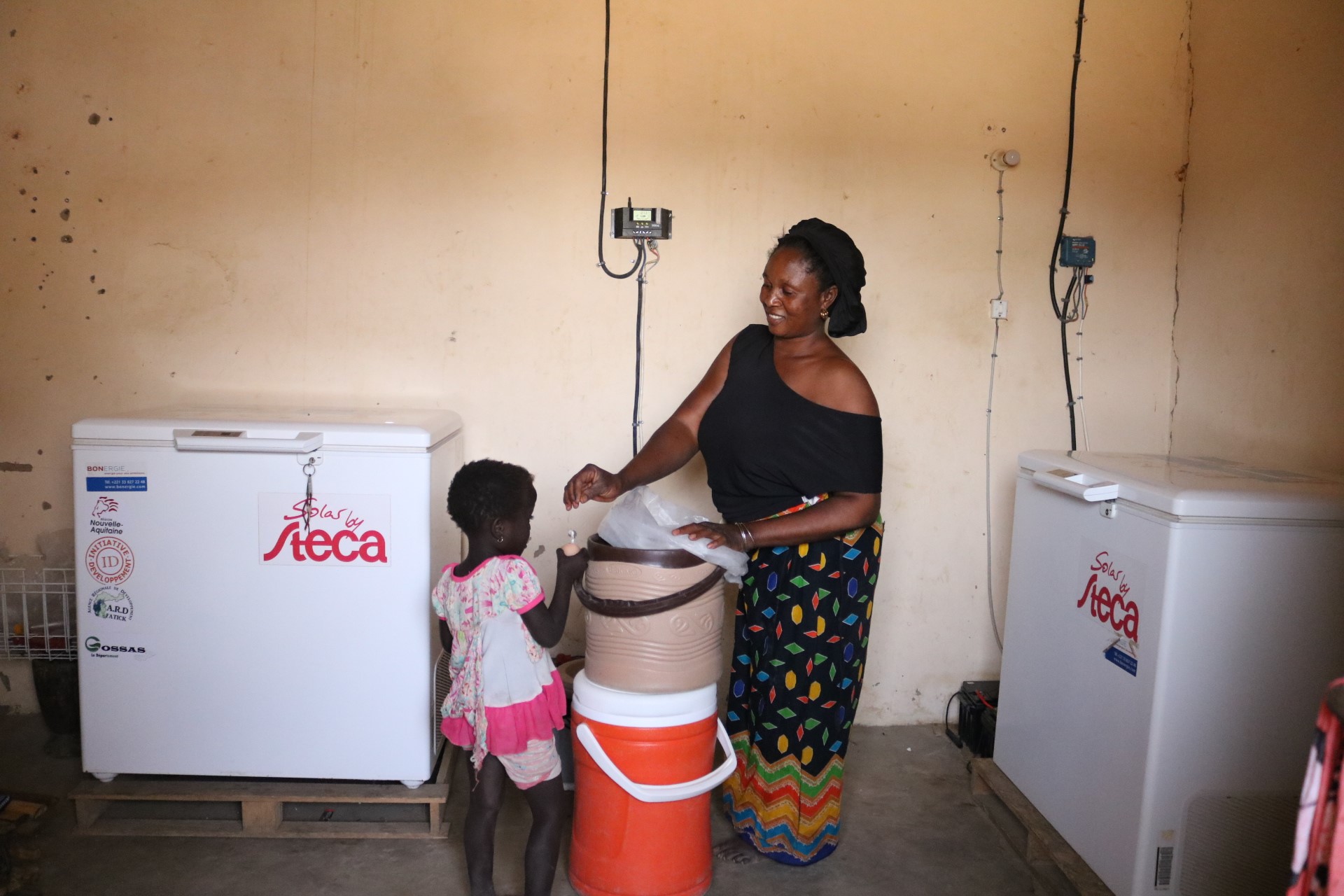Awa Sène was overjoyed when she took delivery of her second solar freezer in April 2021, a decision she had reached after discussing expansion plans with Energy 4 Impact Business Mentor, Dominique Thiaw. She immediately set out to widen her customer base to the surrounding villages. After a difficult period in which her business had struggled against movement restrictions and malfunctioning appliances, the following three months saw Awa generate an average of $280-290 a month from the sales of her juices and frozen products. This was less than she had originally predicted but given the circumstances she was happy to be up and running again.
As the festival of Tabaski (Wolof for Eid El Kebir, the feast of sacrifice) was approaching in July, Awa decided to invest a large chunk of her earnings (237,700 Senegalese Francs / $400) in a consignment of mutton to resell for profit during the festivities. During Tabaski, Muslim families get together to cook delicious meat-based meals in plentiful quantities: according to tradition, each family sets aside only a third of the food they prepare for themselves to eat, while one third is donated to friends and relatives and the other third to the poor and needy. Awa’s plan, or “operation Tabaski”, as Awa dubbed it, turned out to be a canny move, generating a good return which enabled Awa to replenish her coffers.
Unfortunately for Awa, the end of Tabaski coincided with the start of a difficult period. Her entire family contracted Covid-19 and went into isolation for a couple of weeks to avoid contaminating other people. Awa’s mother got very ill, and her condition worsened despite all the care and expensive treatments she received. Sadly, her mother died, leaving Awa and her family bereft.
As the period of illness and isolation had caused her income to plunge by 68% within a month, Awa stoically resumed her business activity. However, she was shocked to realise that customers were continuing to keep their distance out of mistrust. The fear of contagion had reached fever pitch in the village and most of her customers decided to forgo buying juices and merchandise from Awa’s shop.
From August to September, her income fell even more. Thankfully she could count on the money raised from the sale of the meat and some help from her husband and brothers to get through these though times.
Determined to move forward, Awa asked for help from her Energy 4 Impact mentor to renegotiate the credit repayment schedule for the second freezer with the supplier. The supplier was very understanding, given her family circumstances, and granted Awa a 6-month extension.
In October, back to full health and confident that the mistrust of the villagers had subsided, Awa resumed the sale of juices and ice lollies in her grocery shop. Local children were overjoyed, and the reopening of schools brought both old and new customers to her shop.
Awa is now more optimistic. She comments,
This has been a really dark period for me, both on a personal and professional level. But as a woman entrepreneur used to encountering difficulties, I understand that the obstacles along the path have to be faced and overcome.
This story has been developed by our partner Energy 4 Impact as part of our Women’s Economic Empowerment Program.











Follow us on: